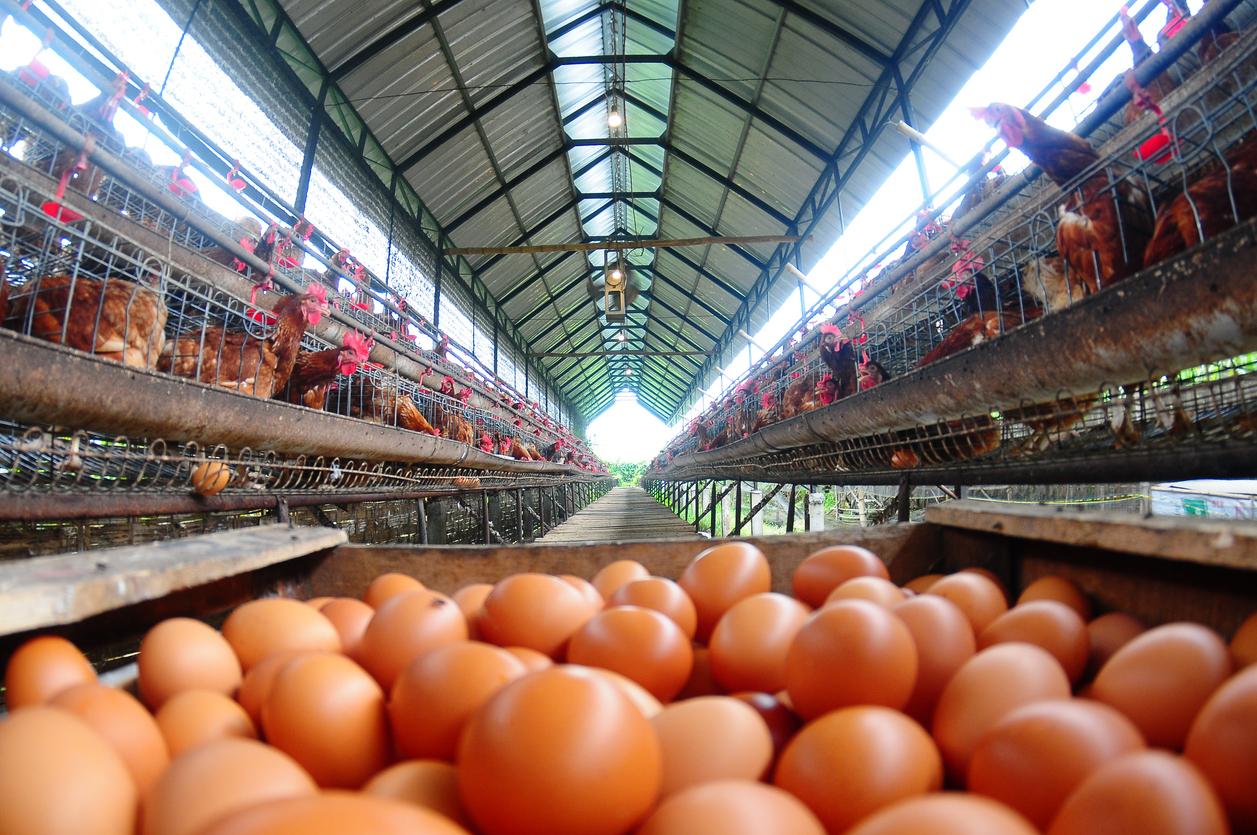
Antimicrobial peptides derived from a strain of probiotic bacteria demonstrated the potential to inhibit the most common bacterial cause of foodborne illness in lab and poultry experiments, according to a team of researchers from The Ohio State University.
In a paper published yesterday in the journal Microbiology Spectrum, the researchers report that three small peptides (P1-NPSRQERR, P2- PDENK, and P4-MLNERVK) derived from Lactobacillus rhamnosus GG inhibited the growth of Salmonella serovars Typhimurium and Enteritidis—the top Salmonella serovars isolated in human infections—in a series of lab experiments. They also inhibited the growth of other serovars commonly found in foodborne Salmonella infections.
When the researchers tested the efficacy of the peptides in a flock of layer chickens who were challenged with Salmonella Typhimurium, they found that two of the peptides (P1 and P2) reduced intestinal colonization at 7 days post-infection, with no adverse effects on the microbial community in the intestine. The peptides were also unaffected by exposure to heat and protease treatment, a finding that suggests they could potentially be incorporated into commercial feed.
A possible alternative to antibiotics
The researchers say the peptides could provide an alternative approach to antibiotics for controlling Salmonella in chickens and chicken products, which are the primary vehicle for Salmonella infections. Chickens and turkeys are frequently colonized with Salmonella without detectable symptoms, but people can become ill if they consume undercooked poultry products that are contaminated with the bacteria.
"We identified 2 antimicrobial peptides that kill many different types of Salmonella and also reduce Salmonella load in chickens," corresponding study authors Gireesh Rajashekara, PhD, said in a press release from the journal publisher the American Society for Microbiology. "This study could provide a framework for developing and using antimicrobial peptides to control Salmonella in chickens, thereby promoting food safety and public health."
Rajashekara and his colleagues say future studies will explore how the peptides inhibit Salmonella, whether they can inhibit other bacterial pathogens, and how to optimize their delivery in water and/or feed.
















